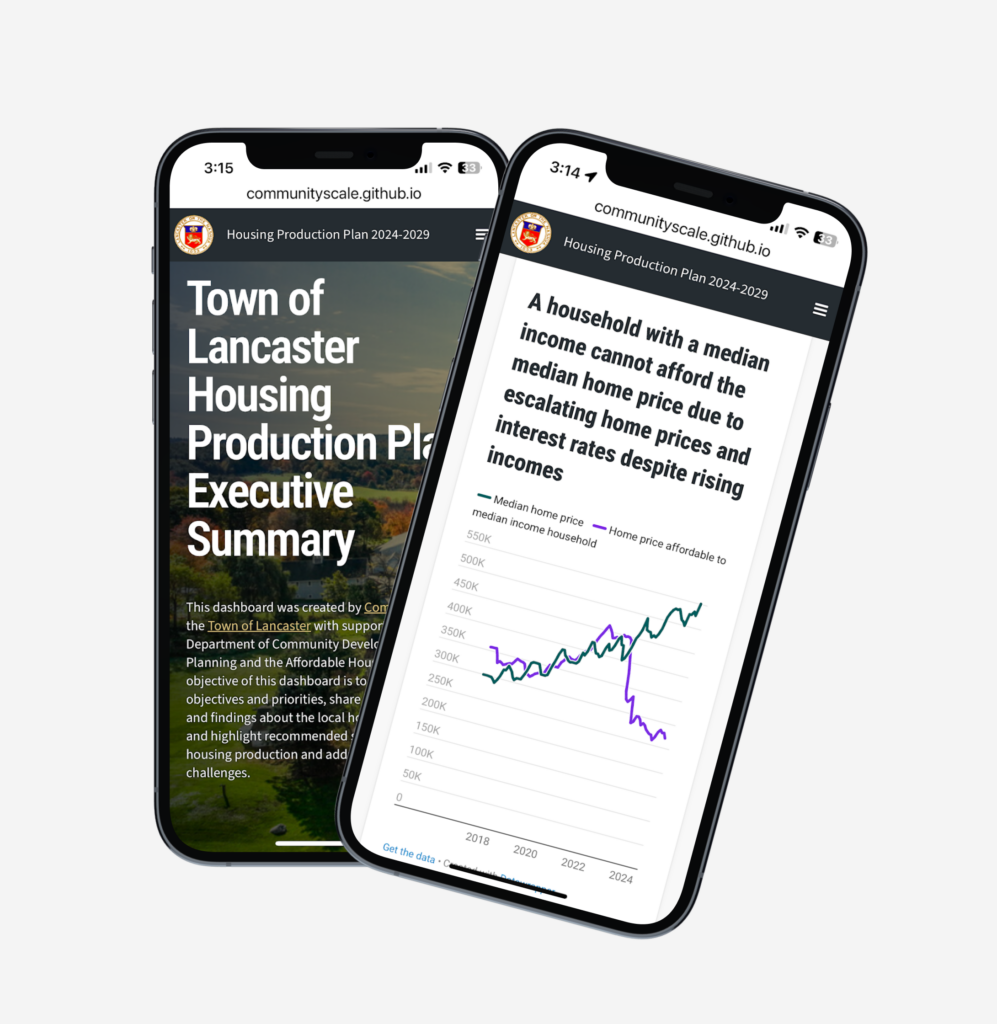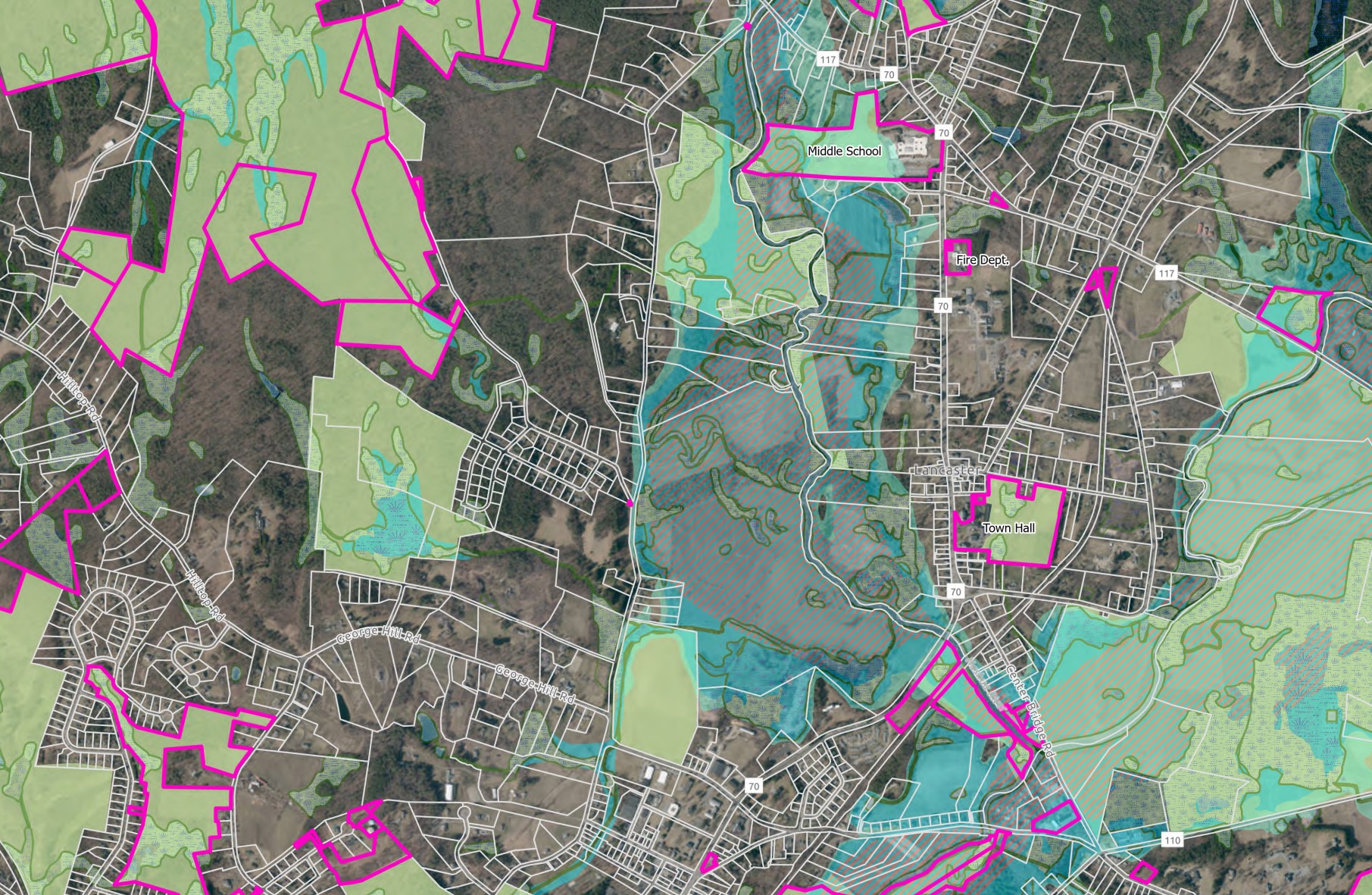| Client | Town of Lancaster, Massachusetts |
| Partner | Levine Planning Strategies |
| Services | Housing study, Dashboard |
| Timeline | April – November 2024 |
| Deliverable | Housing Production Plan |
The Lancaster Housing Production Plan (HPP) for 2024-2029 provides an updated roadmap to enhance affordable housing options in the town. Building on the foundation set by the 2019 HPP, this new plan focuses on achieving the state’s goal of more than 10% affordable housing units. The plan includes a needs assessment based on demographic analysis and market trends, which identify pressing housing challenges, such as housing attainability and cost burdens for residents. Additionally, the plan outlines the importance of meeting the housing needs of growing income groups, particularly the 30-60% AMI category, and accommodating Lancaster’s aging population.
What is a Housing Production Plan?
By state statute MGL Chapter 40B, cities and towns are required to provide more than 10% of their total year-round housing units as deed-restricted Affordable Housing. Affordable Housing is deed-restricted housing that eligible low- and moderate-income residents can afford by paying no more than 30% of their annual household income. Lancaster has 3,053 housing units, per the 2022 Census ACS 5-Year estimate, of which 188 (or about 6.2%) are deed-restricted Affordable Housing units on the state’s Subsidized Housing Inventory (SHI).
The number of households in Lancaster has been growing at a rate of 2.3% a year since 2010
Digital report
CommunityScale created an open source report dashboard to outline the plan's objectives and priorities, share key observations and findings about the local housing landscape, and highlight recommended strategies to increase housing production and address affordability challenges. Learn more about our digital products.

Crafting strategies
We worked with the client and Levine Planning Strategies to create five housing goals and a suite of regulatory changes and local programs to address affordability.
The plan's actionable strategies include zoning changes, town land disposition, and an increase in the Community Preservation Act rate. Through community engagement initiatives, Lancaster has identified support for flexible zoning and smaller homes while preserving neighborhood character. Public utility expansions and increased Affordable Housing Trust funding are additional recommendations, ensuring that Lancaster has the infrastructure and financial tools to support the anticipated housing demand. This HPP emphasizes a proactive approach to affordable housing, designed to align with broader community objectives of economic growth, sustainability, and inclusivity.

